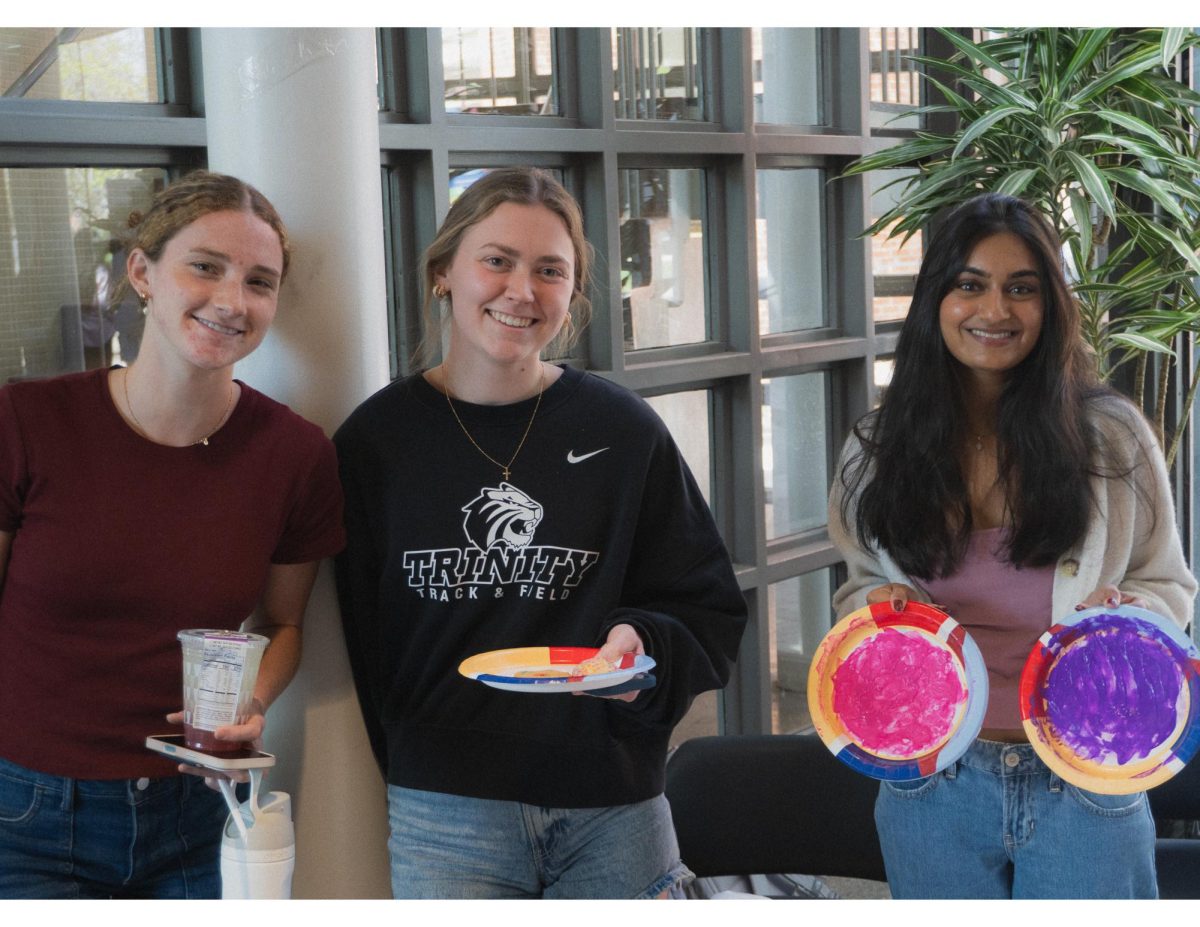AI is infiltrating many aspects of our daily lives. Althea Delwiche, professor and communication department chair, teaches a class that equips students to better understand the developing technology.
Delwiche has taught this class, Interactive Multimedia Communication, for over 10 years, and she adjusts the syllabus every year to reflect current technological development. This semester, the class is called “Merging AI and Web Technologies.” Along with mandatory course content in basic HTML and JavaScript interactivity, the class utilizes a badge system to encourage students to pursue skills that interest them.
According to Delwiche, AI’s emergence is completely transforming the nature of what it means to be a web designer. With the assistance of AI, anyone can create a website with just a sheet of paper and a pen in under 10 minutes.
“Now, what we’re doing is using AI as tools to create content for the web. Students have created interactive trivia games. They’re actually now creating websites that are driven by an AI model,” Delwiche said. “One of the cool things about this is that, in terms of what students can accomplish, the outputs, the things that they are creating with the computers, they can do so much more now.”
Since 2022, generative AI has seen massive increases in capability, and models pass tests that we measure intelligence with at extremely high rates. Delwiche has a great interest in the development of AI’s intelligence and firmly believes that the world is on the brink of change.
“I think those models are still flunking the test, but the way the improvements are going, there seems to be a growing belief among people who work in the industry that we are on the brink of artificial general intelligence,” Delwiche said.
Delwiche said that she is both excited and terrified by the idea of AI advancing further. She enjoys playing with AI and seeing what it can do, but she also acknowledges that the development is happening during a moment where resurgent authoritarian governments are in power globally.
“As a faculty member, as a professor and educator, I figure that my job in my classes is to help students figure out how to navigate this complete transformation of the world and have a fighting chance at getting jobs,” Delwiche said.
You don’t have to be a computer scientist or a machine learning specialist to understand AI models. Just asking questions and being inquisitive is a starting point. Delwiche hopes that her students will take away a hunger to keep learning, even in the face of a changing world.
“I mean, I hate the fact that my message to students has to be ‘you’ve got to keep learning’ You’ve got to be hungry, you’ve got to keep up with this stuff,’” Delwiche said. “That is kind of an intense message. Unfortunately, I think that’s just the reality of where we are.”
Delwiche argues against the mindset of feeling trapped by the advancement of technology, a term that she has coined “the rhetoric of technological inevitability.” AI is inevitable and emerging at a time of massive uncertainty at a global level.
“Having said that, I have never felt so overwhelmed, in good and bad way, by the power and speed and accelerated growth of technology as I have with AI,” Delwiche said.
Instead of rejecting it, Delwiche leans into the use of AI in the classroom. Interactive Multimedia Communication is one way to learn how to interact with the technology, but Delwiche also has students use it in her advertising class. In this class, students must use AI to proofread, polish and analyze documents that agencies are turning in.
Next semester, Delwiche will teach a class called “AI Technocracy and Fascism,” which will focus on the relationship between the current government administration and Silicon Valley elites. The Biden administration called for more regulation of AI technologies, which Delwiche said was unsatisfactory for Silicon Valley.
“Even though I agree that Biden’s policy made sense, I am a bit more of an accelerationist,” Delwiche said. “I want to see open source models in people’s hands. I want to see it taken out of the hands of the AI companies and put in the hands of the ordinary individual.”
According to Delwiche, education and conversation are the first steps to fighting the overwhelming surge of information about AI. She said that soon the world of the past will be unrecognizable, and although that is a hard pill to swallow, we must accept the change that is coming.
“It’s terrifying, but it’s also a chance to write a new script,” Delwiche said. “Maybe we’ll have a shot, but we’re going to need to take care of each other.”








